
7 minute read
Quality, experience and knowledge in shipping
ADMARE SHIP MANAGEMENT I PROFILE
Admare Ship Management, based in Gothenburg, Sweden, delivers a highly adaptable and flexible vessel management service. This relatively young company sports a diverse but high-end fleet of cargo and RoRo car carriers and their crews within its portfolio. Fleet Manager Tommy Pettersson chatted to Richard Hagan about the company’s history, the unusual flags in its fleet, its focus on sustainability, and its plans for the future.
Advertisement
QUALITY AND KNOWLEDGE IN SHIPPING EXPERIENCE
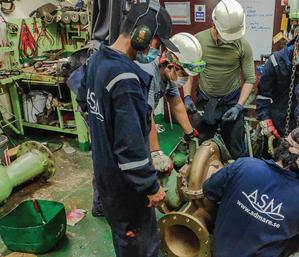
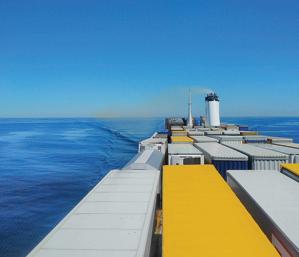
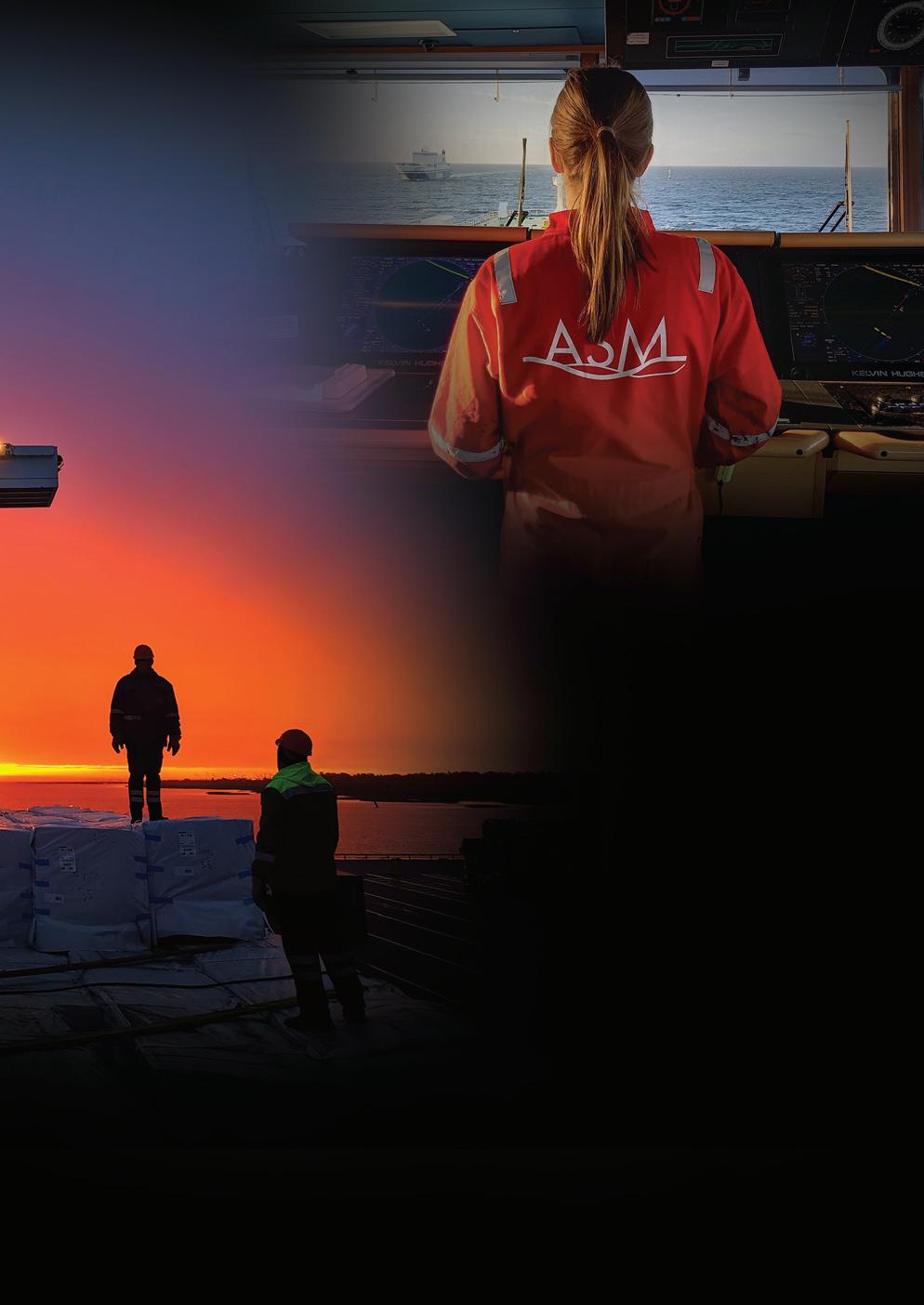
Admare Ship Management (ASM), is technically still fairly young, having been established in 2017. But that’s not its whole story. The company came about as a result of a merger between two smaller companies also located in Gothenburg. Both had been operational for some time until deciding to join forces and create a new management company, combining their skills and human resources.
However, since summer 2021 the company is again fully owned by the Leomar Group (also known as Ellingsen). Based in Stockholm, the company boasts long experience in the shipping field.
Via its team of nine skilled professionals ashore, it manages an impressive and diverse fleet of modern RoRo carriers and bulk cargo ships as well as their crews.
The company takes full technical and crewing responsibility for all of its ships, providing its ship owners with a comprehensive level of service that punches far above its weight in human resources.
According to Tommy Pettersson, Fleet Manager at ASM, its size is an intentional part of the value that the company delivers to its clients.
“Our focus is on providing a cost-effective, transparent and flexible solution to all of our clients,” he said. “We’re small enough to be flexible and open, but big and robust enough to provide comprehensive support, knowledge and experience to various clients. Whether our clients have big or small vessels, we adapt to their needs.”
The company’s only office is its headquarters in Gothenburg, where most of Sweden’s shipping-related service companies are located. With its relatively compact – for this industry at least – team, the staff at ASM can’t afford to be rigid in their approach to their workflows.
“We’re a small, tight group, which means that it requires some flexibility from our staff,” Mr Pettersson explained. “We can’t just focus on doing one single job; everyone must be flexible. In practice, that means that no day is like the other. Things can –and do – change quickly, meaning the plans you had for the day can wait for another day!”
Focus on flag states
One aspect of ASM’s fleet that immediately jumps out to the observer is the fact that all of the vessels are flagged in either the United Kingdom or Sweden, instead of the usual, more ‘convenient’ flags such as some of those linked to Caribbean islands or African countries. Whilst decisions about flag registrations are the exclusive domain of each vessel owner, Mr Pettersson highlighted the fact that the owners’ choice of UK and Swedish registrations sends a particular message to the market.
“All of our clients are currently based in either the UK or Sweden and from their point of view, they are serious actors.
ADMARE SHIP MANAGEMENT I PROFILE
For that reason, they take pride in flying the red ensign or the Swedish flag. Flags of convenience have never even been a consideration for them.”
The fleet’s high-end flags are a boon for ASM’s credibility as well. “As a company, I’d say that the flags on our fleet are a warning sign for new (or even existing) clients wanting to bring vessels to our company bearing low-performance flags,” Mr Pettersson remarked. “It’s a risk that could affect the rest of our fleet.”
Going into more detail on that point, Mr Pettersson discussed the specific threats that more convenient flags pose to ASM’s credibility.
“It doesn’t automatically mean that if you’re flying a flag of convenience, that the vessel is in poor shape with many problems, but it could be. Port inspections involve risk calculations for our whole company. If we’re a high-performance flag company, there is less risk from the flag and port state in terms of inspections. But if we have even one vessel with poor stats or performance, it’ll drag down the rest of the fleet with it. That’s a risk and we try to avoid it. We have clients with very high standards and we don’t want to do anything to risk their reputation.”
Of course, flying a high-performance flag is about much more than just credibility and inspections. There are real benefits that both ASM and its seafarers enjoy, Mr Pettersson confirmed.
“We get the best support and service from these serious, high-performance flags,” he noted. “We have a good relationship with both the UK and Sweden and in case of problems, we can expect that they’ll give us first-class service. In terms of the crew, they have strong unions to support them and good market-related wages. So while it’s a bit more expensive for the owner, in totality, it’s worth it.”
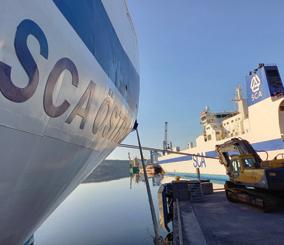
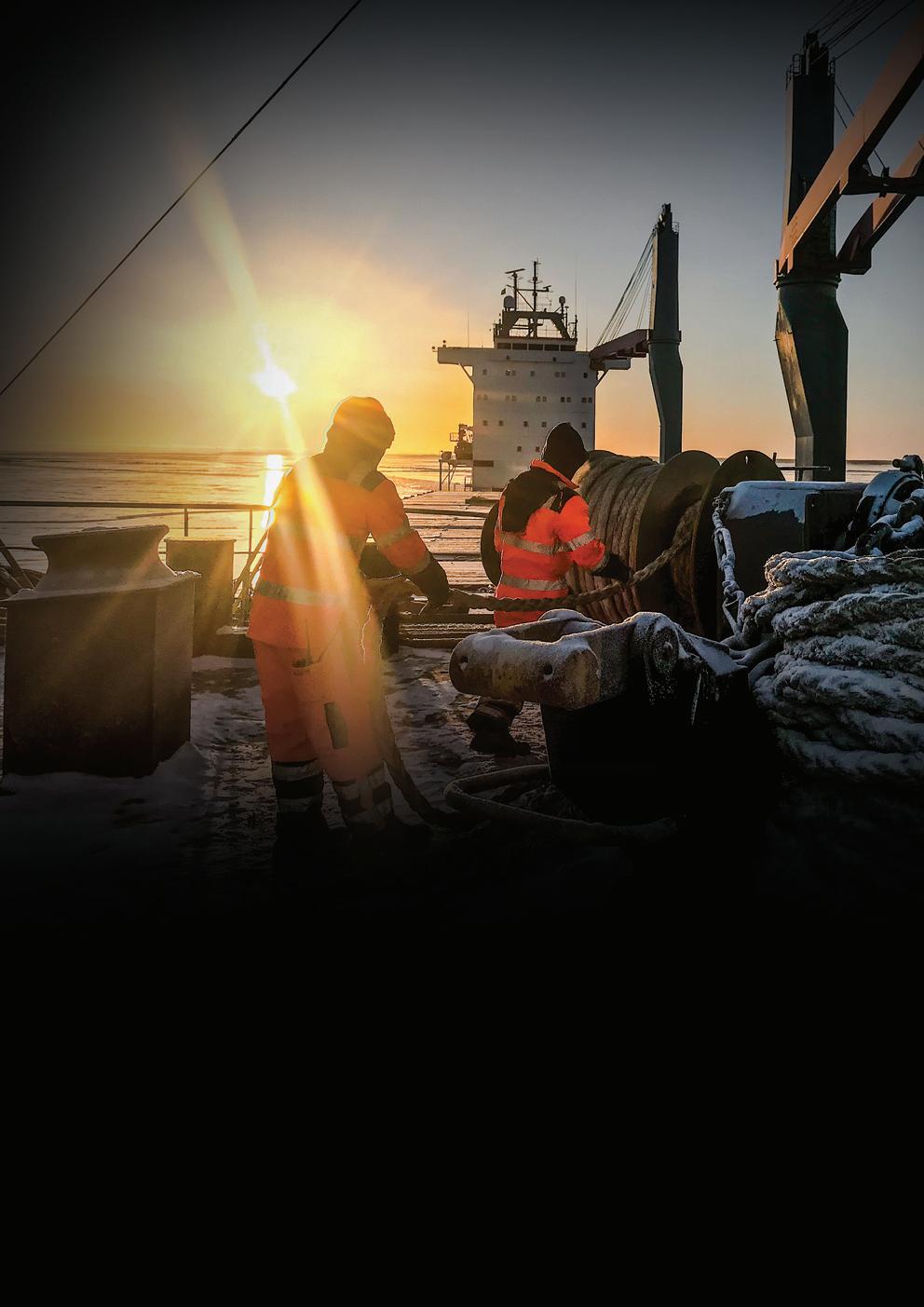
Steaming towards sustainable shipping
Sustainability is a major theme throughout the shipping industry, particularly given major upcoming European emissions regulations.
“The regulations coming into force in 2023 are massive, it’ll be a major change for many shipowners,” Mr Pettersson
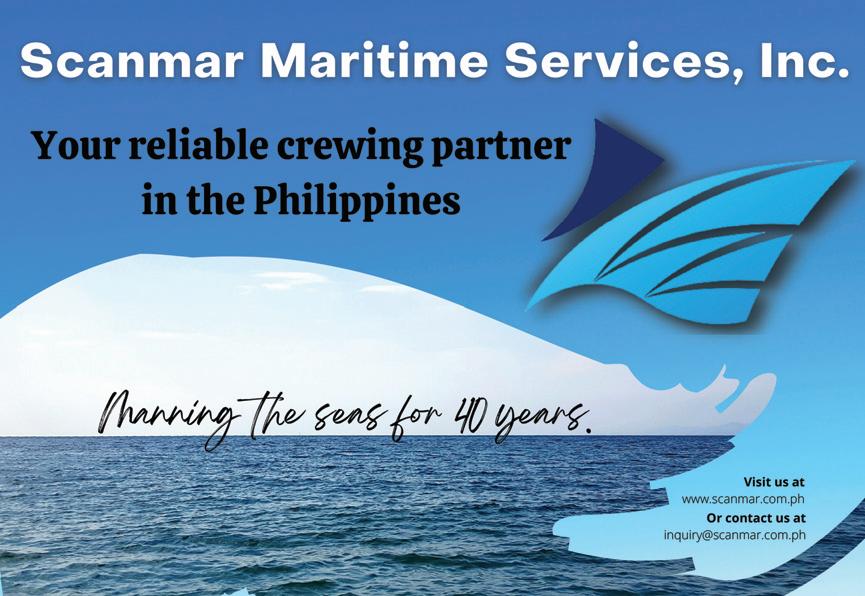


ADMARE SHIP MANAGEMENT I PROFILE
remarked. “A lot of vessels will end up needing to be either recycled, scrapped, or receive heavy investments in order to survive. It’s a big change.”
ASM is collaborating intensively with its ship owners to ensure that its fleet is fully compliant when the first of the regulations begin to take effect in 2023.
“We’re working with our owners and planning emissions reduction measures on a ship by ship basis,” confirmed Mr Pettersson. “The easiest way to reduce emissions is, of course, to reduce fuel consumption and there are a lot of technical solutions for achieving that. But many of those measures can be huge investments. Nonetheless, we’re looking at all options. This is the last year that we can test things out before the regulations come into force.”
One of the options that ASM is exploring is the use of rotor sails, sometimes known as Flettner rotors after their inventor. They are massive spinning cylinders mounted vertically on a ship’s deck and can be 10 storeys tall. Rotors are able to reduce a ship’s fuel consumption by exploiting a physics phenomenon called the Magnus effect. When air passes over the spinning rotor, the Magnus effect produces a force that pushes the object on which the rotor is mounted – in our case, a ship.
“You can save a lot of fuel through the use of rotors,” said Mr Pettersson. “It’s a very interesting option that we’re looking into right now. We also have a plan to replace all onboard lights with LED lights, and we have already installed exhaust scrubbers to remove sulphur from the exhaust fumes. Basically, we’re looking into a lot of different decarbonization measures right now, that will be presented to our clients.
That’s an overview of both smaller and larger measures that ASM and its shipowners are exploring, but some of its owners are going straight for the most expensive option.
“Some owners are looking at replacement, next-generation RoRo vessels in order to be competitive,” Mr Pettersson revealed. “The competition for them will be even tougher in the future and fuel efficiency will become a factor, to an extent that it hasn’t ever been the case before.”
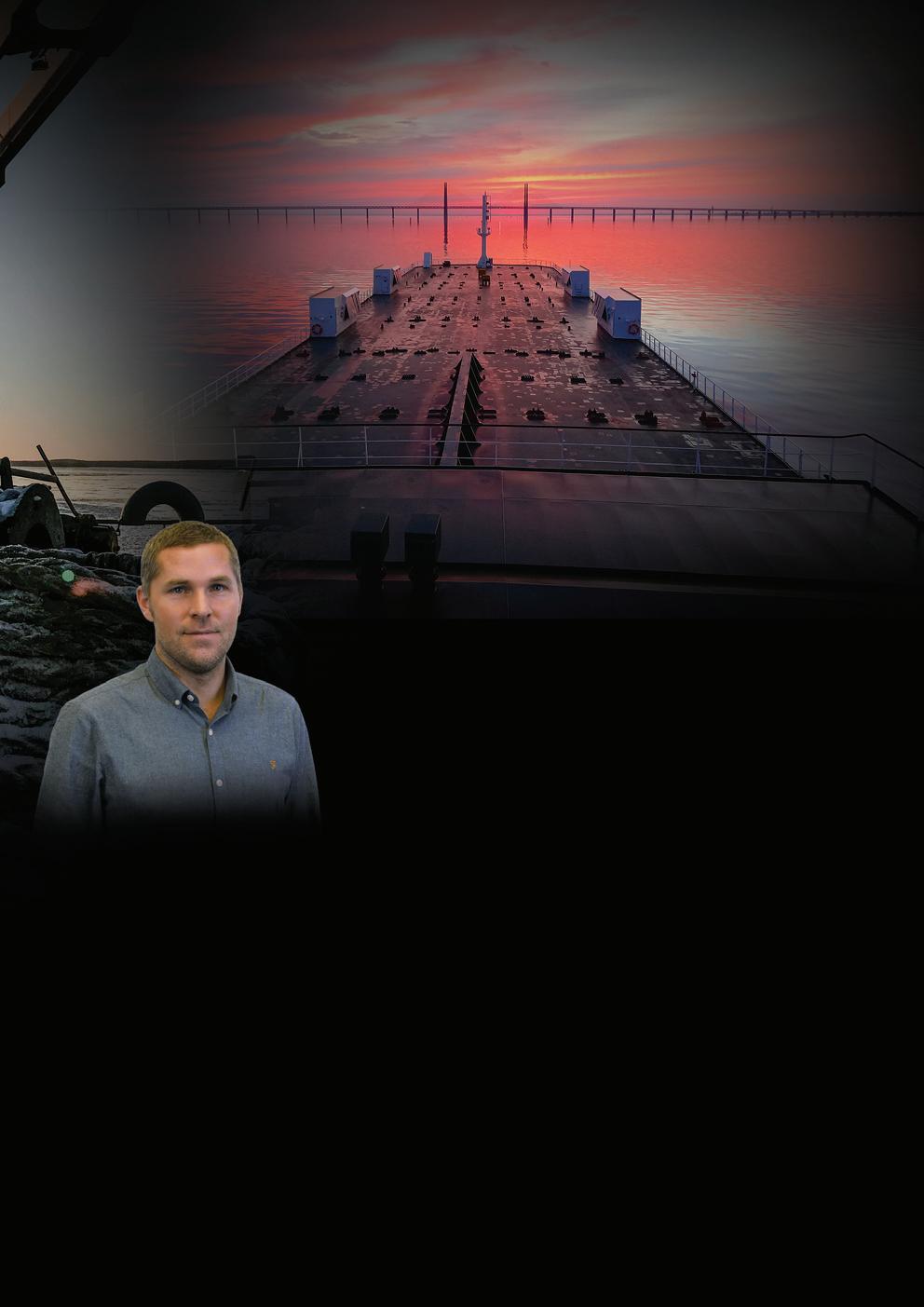
Tommy Pettersson, Fleet Manager
One plan, one future, one team
Mr Pettersson concluded with a look into his team’s perspective on the company’s future.
“The merger between two companies is now history and now we are back to having one owner, one philosophy, and a unified plan for the future,” he asserted. “We’re extremely optimistic and we only see opportunities in our future. Right now, we’re not rushing to find more vessels for our fleet; instead, we’re focusing on maintaining the clients and ships that we already have and providing the best service to them.
“Word about our service will ultimately spread and it’ll bring us more contracts and more vessels, so while we are happy to grow, we won’t do it at the expense of maintaining our existing service levels. After all, our clients’ success is our success.” n










